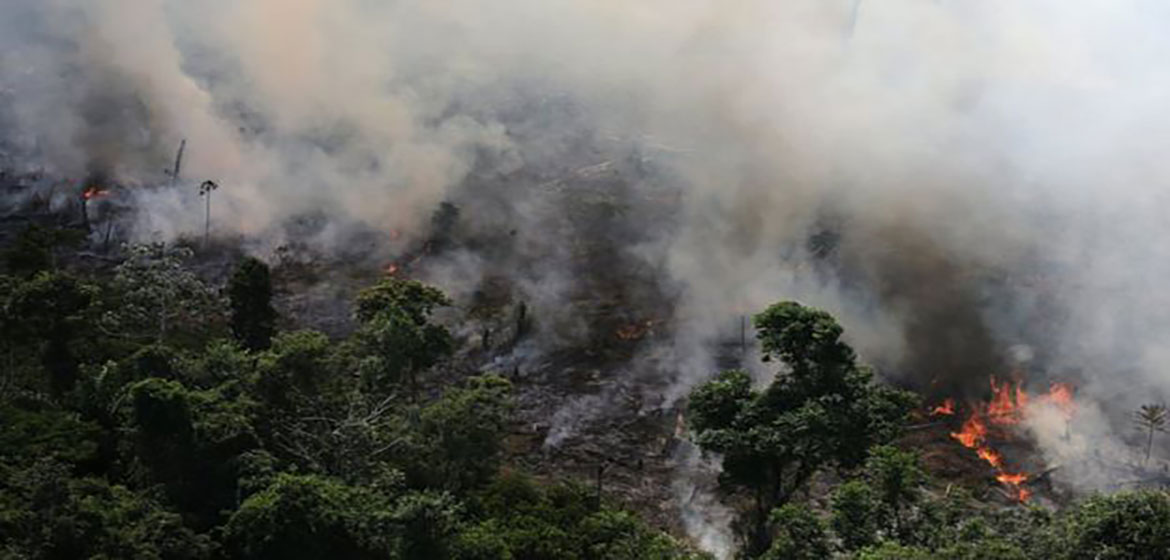Brazil's Amazon rainforest has seen a record number of fires this year, new space agency data suggests.
The National Institute for Space Research (Inpe) said
It comes weeks after President Jair Bolsonaro sacked the head of the agency amid rows over its deforestation data.
The largest rainforest in the world, the Amazon is a vital carbon store that slows down the pace of global warming.
It is also home to about three million species of plants and animals, and one million indigenous people.
Conservationists have blamed Mr Bolsonaro for the Amazon's plight, saying he has encouraged loggers and farmers to clear the land, and scientists say the rainforest has suffered losses at an accelerated rate since he took office in January.
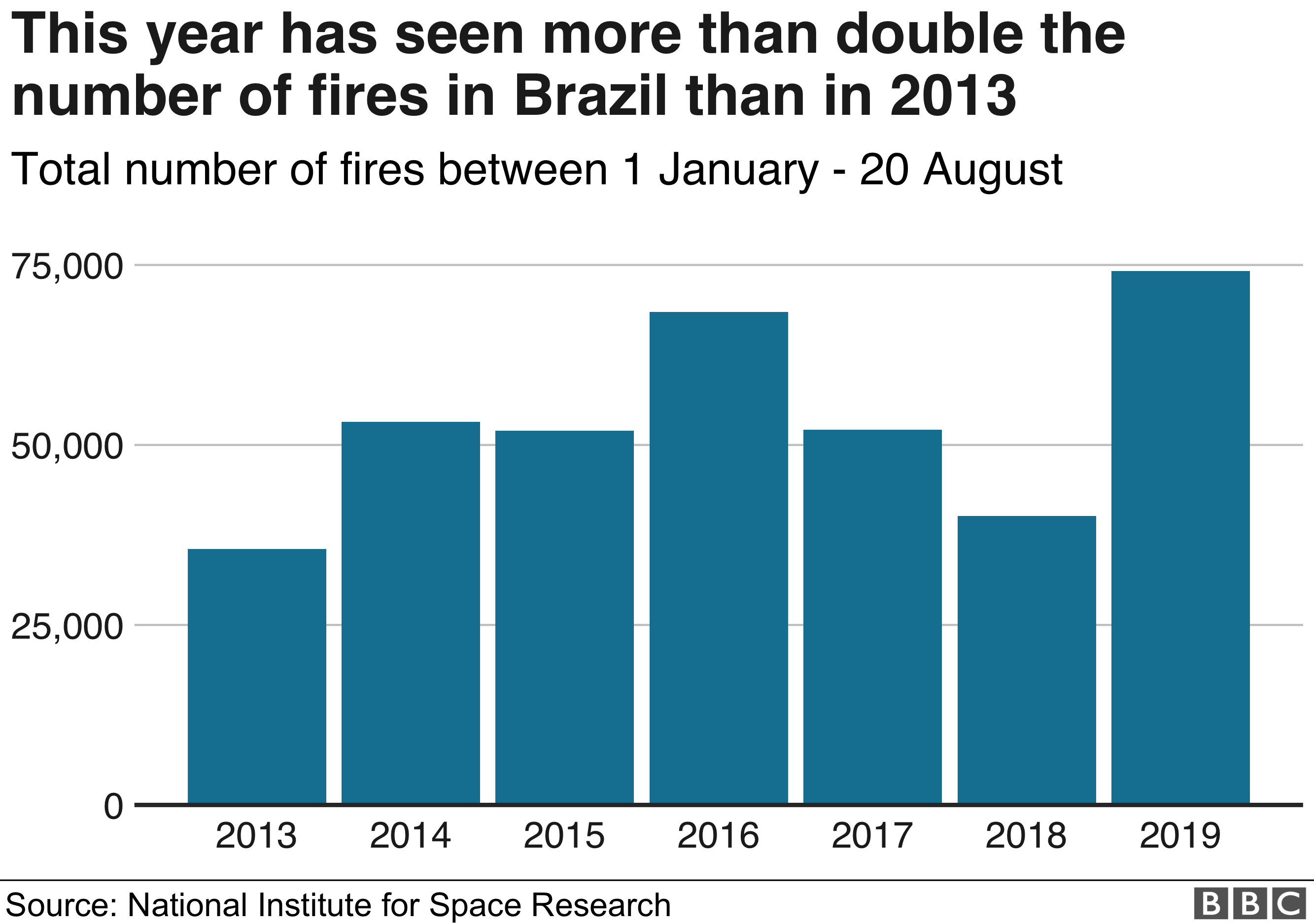
Meanwhile, US space agency Nasa said that overall fire activity in the Amazon basin was slightly below average this year.
The agency said that while activity had increased in Amazonas and Rondonia, it had decreased in the states of Mato Grosso and Pará.
It was earlier reported that a blackout on Monday in the city of São Paulo - more than 2,700km (1,700 miles) away - had been caused by smoke from the Amazon fires.
But some meteorologists say the smoke came from major fires burning in Paraguay, which is much closer to the city and not in the Amazon region.
Why are there fires in the Amazon?
Wildfires often occur in the dry season in Brazil but they are also deliberately started in efforts to illegally deforest land for cattle ranching.
Inpe said it had detected more than 74,000 fires between January and August - the highest number since records began in 2013. It said it had observed more than 9,500 forest fires since Thursday, mostly in the Amazon region.
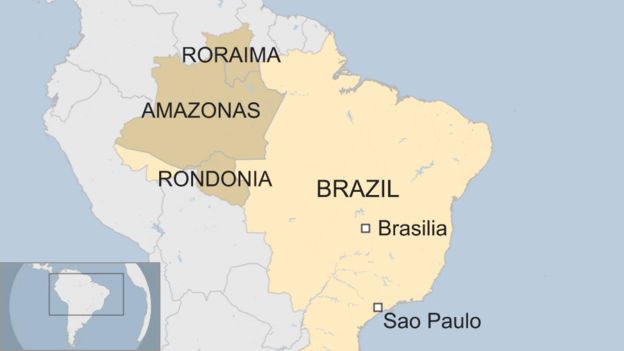
In comparison, there are slightly more than 40,000 in the same period of 2018, it said. However, the worst recent year was 2016, with more than 68,000 fires in that period.
The satellite images showed Brazil's most northern state, Roraima, covered in dark smoke, while neighbouring Amazonas declared an emergency over the fires.
Mr Bolsonaro brushed off the latest data, saying it was the "season of the queimada", when farmers use fire to clear land. "I used to be called Captain Chainsaw. Now I am Nero, setting the Amazon aflame," he was quoted by Reuters news agency as saying.
Later he appeared to suggest that non-governmental organisations had set fires, as revenge for his government slashing their funding. He presented no evidence and gave no names to support this theory, saying there were "no written records about the suspicions".
"So, there could be..., I'm not affirming it, criminal action by these 'NGOers' to call attention against my person, against the government of Brazil. This is the war that we are facing," he said in a Facebook Live on Wednesday.
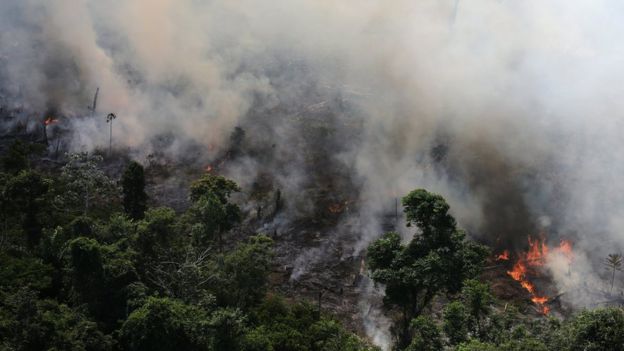
Inpe said it had detected more than 72,000 fires so far this year. REUTERS
Inpe noted that the number of fires was not in line with those normally reported during the dry season.
"There is nothing abnormal about the climate this year or the rainfall in the Amazon region, which is just a little below average," Inpe researcher Alberto Setzer told Reuters.
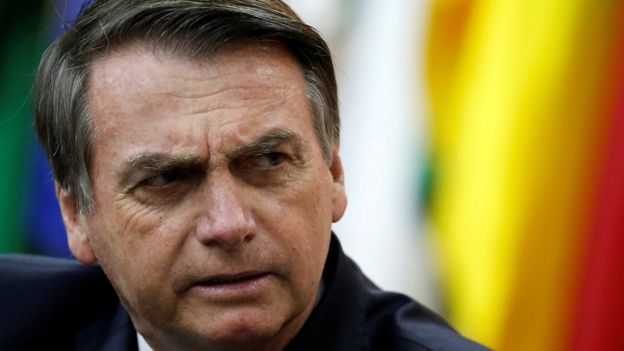
Mr Bolsonaro has been criticised over his environmental policies. REUTERS
"The dry season creates the favourable conditions for the use and spread of fire, but starting a fire is the work of humans, either deliberately or by accident."
Ricardo Mello, head of the World Wide Fund for Nature (WWF) Amazon Programme, said the fires were "a consequence of the increase in deforestation seen in recent figures".
Why is Bolsonaro being criticised?
The reports of a rise in forest fires come amid criticism over Mr Bolsonaro's environmental policies. Scientists say the Amazon has suffered losses at an accelerated rate since the president took office in January, with policies favouring development over conservation.
Over the past decade, previous governments had managed to reduce deforestation with action by federal agencies and a system of fines. But Mr Bolsonaro and his ministers have criticised the penalties and overseen a fall in confiscations of timber and convictions for environmental crimes.
Last month, in the Amazon and trying to undermine the government. It came after Inpe published data showing an 88% increase in deforestation there in June compared to the same month a year ago.
The director of the agency
Inpe has previously insisted that its data is 95% accurate. The agency's reliability has also been defended by several scientific institutions, including the Brazilian Academy of Sciences.
Source:
Related to SDG 13: Climate action

